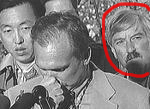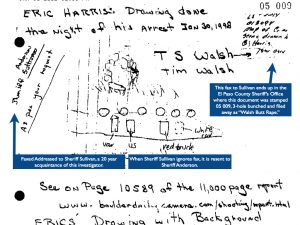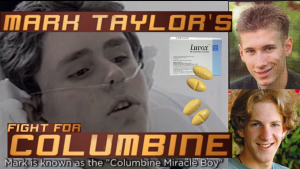10th Circuit Ruling Keeps Columbine Depositions Under Seal
10th Circuit Ruling Keeps Columbine Depositions Under Seal
It’s been almost 10 years since the Columbine High School shootings, and still no one outside the legal teams at odds in a pair of long-settled civil suits has seen the depositions of the parents of shooters Eric Harris and Dylan Klebold. And that’s the way it’s going to stay for at least 20 years, thanks to a three-judge panel of the 10th U.S. Circuit Court of Appeals.
Holland & Hart partner A. Bruce Jones came into the case relatively late on behalf of the family of Columbine student Mike Taylor, who was seriously wounded in the shootings. Taylor’s family sued a drug company who had manufactured a psychotropic drug taken by one of the shooters prior to the massacre. That suit came alongside another brought by the families of two murdered students against the parents of Harris and Klebold.
The two suits were settled quickly, but not before lawyers in both deposed the killer’s parents. Under the terms of a unique protective order, a special master controlled access to court records in the cases — including the depositions.
“I have never seen a case where discovery materials were so closely monitored,” Jones says.
Various parties have sued to have those records opened up, on the basis of their historical value and the possibility that they could help experts prevent similar attacks in the future. Last year, a federal judge ruled that the records should belong to the National Archives and Records Administration, but that they should remain sealed for another 20 years.
Two sets of plaintiffs appealed to the 10th Circuit, but for very different reasons.
The parents of two of the murdered students — represented by a local boutique headed by Barry K. Arrington — argued that the depositions belonged to the parents and not the National Archives. Jones, meanwhile, argued that an expert on child violence should be able to examine the depositions immediately, and says he would have been open to having the records available in the National Archives at some point.
“That’s better than essentially having them buried for the next 20 years,” Jones says.
On Monday, a three-judge panel ruled 2-1 to uphold the district court’s ruling to transfer the documents to the National Archives but keep them under seal for another 20 years.
One strange twist: the 2-1 majority said it was difficult for them to open up the deposition records because they themselves didn’t have the chance to read them — even though the judge at the district level, Lewis Babcock, read the depositions as part of his ruling in the case. The majority chastised Jones for not asking Babcock to include the depositions in its filing with the appeals court.
“I was really whip-sawed by that,” Jones says. “That seems off the wall to me.”
Jones says Taylor’s family probably found him because of his role in representing the family of Dave Sanders, a teacher slain in the attacks. The Holland team on that case argued that the Jefferson County Sheriff’s department violated Sanders’ civil rights by failing to rescue him as he lay wounded inside the school for several hours. Sanders’ daughter settled the case for $1.5 million, and her lawyers, including Jones, agreed never to discuss what they learned about the shootings, according to this story from theRocky Mountain News.
This article first appeared on The Am Law Daily blog on AmericanLawyer.com.






